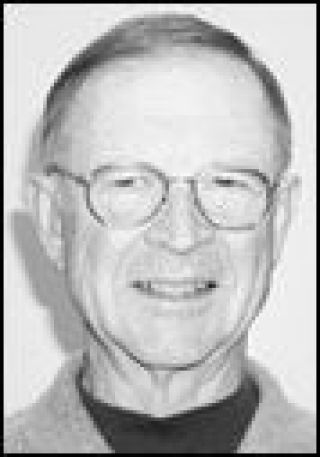How far is it to Seattle? That depends. Among other things, it depends on the time of day, the season, weather and the particular day of the week. Add the price of gas. According to the on-the-ground measure, Seattle is 38 miles away. My cars odometer agrees with maps that 38 miles is close to accurate. Though the road still measures 38 miles, I can feel the distance growing every year.
Distance can be more than units of measure that separate Point A from Point B. When a couple appears on Dr. Phil to complain about the distance growing between them, theyre not talking about feet or meters. So it is with the distance separating Marysville from Seattle. Beside miles, time, congestion, road rage, construction delays and general frustration have to be taken into account.
In small ways, the same applies to other travel routes. The distance varies when flying from SeaTac to Honolulu depending on whether one chooses United or Northwest. United flights are routed through San Francisco for a short layover and a dogleg in the course that adds miles. It amounts to an extra four hours and a perception that the distance separating Seattle and Honolulu is greater with United than if you flew Northwests direct route.
Back in the 70s when I had committee meetings to attend in Olympia, I figured that getting on the road before 7 a.m. would beat the morning crunch of commuters through Seattle. Year by year my safe starting time backed up to 6:45 and 6:30. Nowadays one has to hit the road before 5 a.m. to avoid the crunch.
What happens after arriving in Seattle deserves some attention. Parking costs $15 or more per day. Hotels quote stratospheric rates. Costs of everything from coffee to cocktails are higher than in Podunk. Yet Seattle holds attractions the suburbs cannot equal. Concerts at Benaroya. The Mariners and Seahawks. Museums and art galleries. Schmoozing in high-end shops. People watching. Action at and around the Pike Street Market.
For some, Seattle is no farther than a chapter in a good book. Settled into seats in express buses or commuter trains, they lose themselves in reading while the miles melt away. No gritted teeth or mumbled curses for them. The great wonder is, why are they such a minority? Considering the price of fuel, the hassle, the probability of getting stuck in a back-up and general inconvenience, why is it that commuters clamor loudest for more single-car commuter lanes? Why arent they demanding mass-transit alternatives that would remove huge loads of stress and expense and wasted time from their lives?
It comes down to what weve been taught about the value of independence. For generations, weve been sold a bill of goods that elevates total personal independence right up there with godliness. Anything short of total independence smacks of socialism. Lenin-loving commie-pinko socialism.
No mass-transit argument can dent Joe Sixpacks love affair with his car. When his car has a better designed seat and sound system than anything in his home, accelerates from 0-60 in nine seconds and sports a design that makes him well-dressed when seen in it, he wont give up easily. Not $399 per month payments nor AAAs estimated cost per mile of 52 cents will sway him from last dances with his mechanical mistress. Last dances, yes. With Seattle and other destinations retreating into the distance, change for Joe is inevitable.
Joe is independent. Nobody is going to tell him how to commute or when to mow his lawn. He doesnt share. Its his house, his car, his boat, his RV, his vacation home, his this and that. Call it the Tim Eyman syndrome. Dont confuse him with the logic that he might be able to enjoy even more stuff at less cost if he simply rented what he wanted. He could even rent a seat on a daily express bus to Seattle.
Big Oil and the auto industry study Joe because he is their main man. If he should trade part of his independence for inter-dependence, that would mean sharing. Look at what happens when people share. Each individual doesnt have to buy and own their personal everything. That presents such a scary scenario for manufacturers of cars and sellers of oil that they do whatever it takes to scuttle mass transit proposals while promoting highway projects.
Seattle is growing farther away because special interests school us against sharing. But I suspect that even the staunchest supporter of one-passenger-per-car commuting suffers moments of clarity when he understands the utter stupidity of his daily struggle. Nor can a thoughtful person standing on a freeway overpass dismiss the folly of rivers of cars streaming by underneath. Separately, we know what the better way is. Together, we manage to vote against our knowledge.
Were well past the question, is there a better way? We know theres a better way but were caught up in a hucksters myth that my car and I are a unit. It is the American way according to Gods plan. If we could only pause to see the sham for what it is and trade this one corner of our precious independence for inter-dependence, we could change geography. We could bring Seattle closer.
Comments may be addressed to: rgraef@verizon.net
How far is it to Seattle?
How far is it to Seattle? That depends. Among other things, it depends on the time of day, the season, weather and the particular day of the week. Add the price of gas. According to the on-the-ground measure, Seattle is 38 miles away. My cars odometer agrees with maps that 38 miles is close to accurate. Though the road still measures 38 miles, I can feel the distance growing every year.


